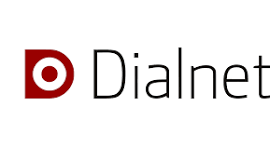Educational Software in the Area of Learning "Social Sciences" for 4th Grade Students of Elementary Education of the Bolivarian E. B. "Dr. José Antonio Pacheco "
Keywords:
Educational Software, Social Sciences, PHP, Dreamweaver CS5, MySQL, JavaScript, CSS, HTML, XAMPPAbstract
This research aims at the development of educational software in the area of learning "Social Sciences" for 4th grade students of Elementary Education of the Bolivarian E. B. "Dr. Jose Antonio Pacheco ". Looking thereby incorporating technology in education. This project supports the Social Project mode, based on a non-experimental research design as it is without deliberately manipulate variables, cross, because data were collected in a single moment, in a unique time, with the purpose to describe variables and analyze their impact and interaction at a given time and exploratory, as is an initial approach to a phenomenon at a specific time. The results of this research led to the conclusion that there is a great need of using software as a learning tool in and 4th grade in the Bolivarian School "Dr. Jose Antonio Pacheco ", and thus achieve the same can be used as the basis and foundation for meaningful learning. This educational software was developed under the Programming Languages PHP, HTML, JavaScript and CSS, using technological tools such as Dreamweaver CS5, the program XAMPP with MySQL database. All these tools allowed the goal.
References
Ausubel, D. y Robinson, F. Eschool Learning. Una Introducción a la Psicología Educativa. Nueva York 1969
Barbero Franco, Ana M La gestión del patrimonio histórico como Instrumento para un desarrollo Sostenible. Ediciones Universidad Salamanca España 2011.
Bruner, Jacobe. El Proceso de la Educación. Editorial México.
Cerda Gutiérrez, Hugo Los elementos de la investigación Editorial el búho Bogotá 2005 (pág. 235)
Cerda Gutiérrez, Hugo Como Evaluar Proyectos Editorial Cooperativa Bogotá (1999)
Diccionario de la lengua española © 2005 Espasa-Calpe
Freire Paulo (1997): Pedagogía de la Autonomía. Ediciones Siglo XXI Gómez Marcelo, Introducción a la Metodología de la Investigación Científica Editorial Brujas Argentina 2006 Primera Edición
Hernández S., Roberto y Otros Metodología de la Investigación McGraw Hill-Interamericana. (2003) Tercera Edición México
Hidalgo, L. La evaluación: una acción social en el aprendizaje Editorial El Nacional (2005)
López B., Ángela R. Orientación vocacional como Proceso Editorial Bonum Argentina (2003) pág. 120.
Marqués P. (1995): Metodología para la elaboración de software educativo en Software Educativo. Guía de uso y metodología de diseño. Barcelona Estel.
Marqués, P.: (1998): La evaluación de programas didácticos. Comunicación y Pedagogía, Nº 149, p. 53-58. Barcelona.
Ministerio del Poder Popular para la Educación. Educación Primaria Bolivariana. 2007.
Nevado Victoria. Introducción a las Bases de Datos Relacionales. Editorial Visión Libros. Año 2010.
Osborn Jeremy. Diseño y Desarrollo Web con Dreamweaver CS5. 1ra Edición 2011. Editorial Anaya. Madrid España.
Pérez h. María G. La Informática, Presente y Futuro en la Sociedad Universidad Rey Juan Carlos. Editorial DYKINSON. Madrid 2006.
Pérez S., Gloria Elaboración de proyectos Sociales casos prácticos España (2000)
Piaget, Jean. Seis estudios de psicología. Editorial Seis Barral S.A. Barcelona. 1967.
Pozo Municio, I: (1998): Aprendices y Maestros. Alianza.
Ramos A; Ramos M. Informática. Explotación de Sistemas Informáticos. 1era edición 2008. Thomson Editores. Madrid España.
Riviere, A. (1989) “Evaluación”. La Evaluación de Programas Educativos. Escuela Española. Madrid. Pp. 25-38.
Sánchez Miguel. JavaScript. Editado por Innovación y Cualificación, S.L. España 2001
Souriau, Etienne Diccionario Akal de Estética Ediciones Akal España (1998)
Tobón Ofelia, García Consuelo, Fundamentos teóricos y metodológicos para el trabajo comunitario en Salud editorial Universidad de Caldas Colombia (2004) pág. 93
Villar, M.; Mínguez, E. (1998): Guía de evaluación de software educativo Grupo ORIXE. Euskadi.
Aubry Christopher, Dreamweaver CS3 Ediciones ENI Barcelona 2008
Fuente: http://books.google.co.ve/books?id=SyrirQ3w8t8C&printsec=frontcover&dq= Dreamweaver+CS3:+Para+PC- MAC&source=bl&ots=r2QO2yQ1jo&sig=wk4cOf- ph15fGA0wQBHBRVTj8SU&hl=es&sa=X&ei=XYJvUMjKMoWC8QScmoC4D A&ved=0CC4Q6AEwAA
Fernández, R. y Delavaut, M. (2008): Educación y Tecnología. Un binomio excepcional. Cuba: Grupo Editor K. Fuente:http://books.google.es/books?id=YwxBnoQeRp4C&printsec=frontcov er&source=gbs_ge_summary_r&cad=0#v=onepage&q&f=false
Pérez Javier Eguíluz Introducción al XHTML 2008 Fuente: http://www.librosweb.es/xhtml/pdf/introduccion_xhtml.pdf
Rivas Elio (2011) su trabajo se tituló “Software Educativo (videojuego) Simulador de Autómatas Finitos”.
Martínez Rodolfo. (2009) en su trabajo de investigación “Software Educativo como apoyo a la lógica proposicional dirigido a estudiantes de la facultad de ingeniería de la Universidad valle del Momboy”.
Delgado Maryori (2008). Realizó una investigación titulada: “Software Educativo para la Enseñanza de estructuras de Control de Programación Estructurada”.
Downloads
Published
How to Cite
Issue
Section
License
Copyright (c) 2013 Hellyss Mendoza , Magdalen González

This work is licensed under a Creative Commons Attribution 4.0 International License.








